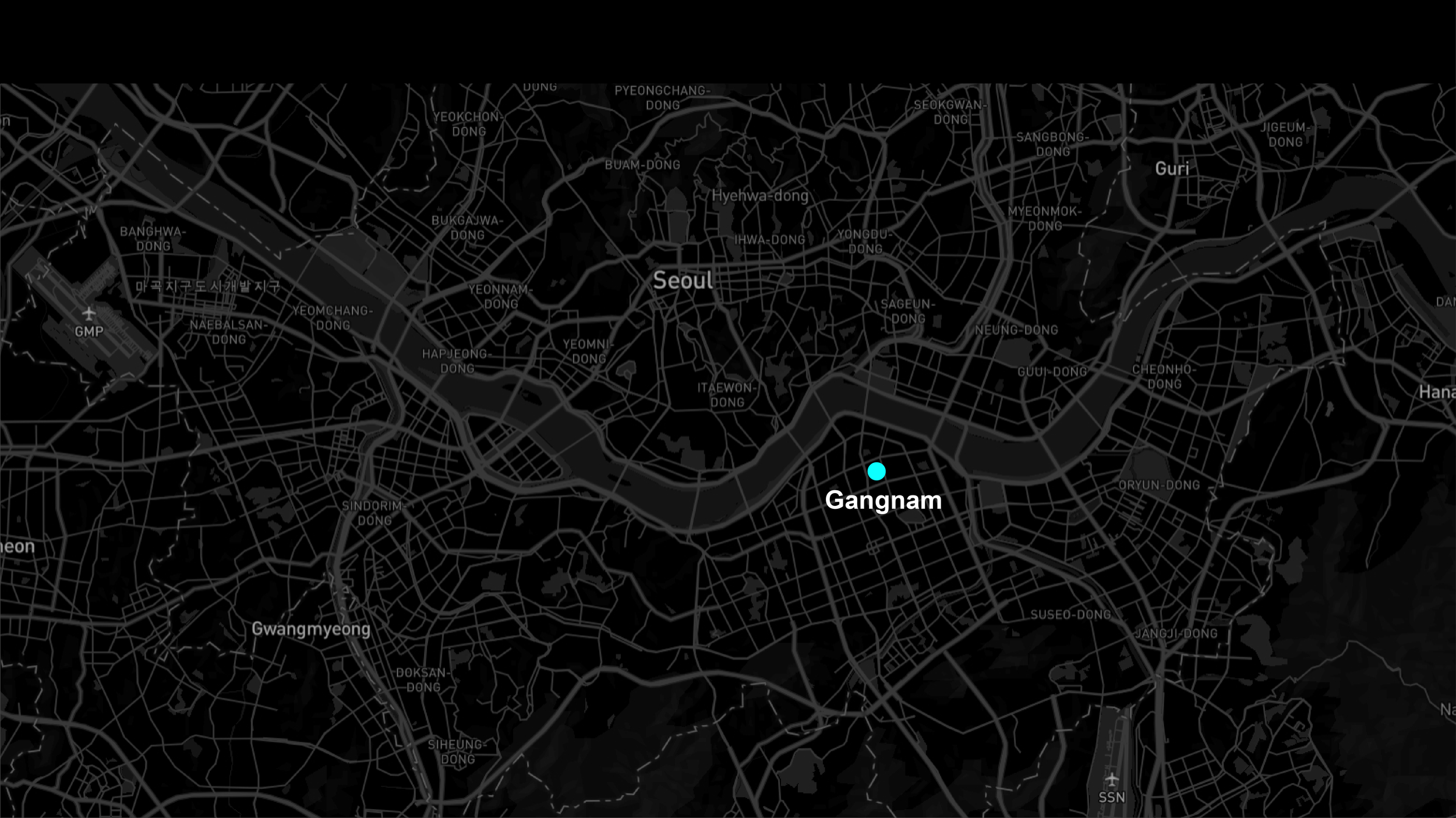
Smart City Planning in Gangnam, Seoul
Examining the COVID-19 effects on travel behavior using smart IoT sensors
A case study of smart city planning in Gangnam, Seoul

Study Area
Gangnam, Seoul




Smart City Planning in Gangnam, Seoul
The application of IoT in cities is a critical component in constructing
a smart city. Seoul Metropolitan Government began installing IoT
sensors known collectively as S-DoT in 2019. S-DoT collects real-time
climate and floating population data. This study aims to introduce a
smart city planning application in Seoul, to validate the S-DoT application,
and to suggest a research framework for using S-DoT data. We analyzed
S-DoT collected floating population data to examine travel behavior,
volume, and patterns during the COVID-19 pandemic. The result showed
that micro-level spatiotemporal analysis was possible using S-DoT data,
and we identified different floating population patterns. The panel regression
result that explained the effects of urban factors on the floating population
revealed that the degree of COVID-19 seems to impact people’s travel
behavior significantly. As more S-DoT technologies are planning to be
deployed in Seoul, the city will begin to collect more sophisticated real-time
data. However, planners and policymakers should be attentive to the issues
and limitations of newly installed S-DoT systems and find better strategies
to use S-DoT data.
Team
Hyekyung Lee
Seungjun Choi
Junfeng Jiao
Author Contributions
Study conception, H.K.L and S.J.C
Study design, H.K.L and S.J.C
Data collection, S.J.C
Analysis of results, H.K.L and S.J.C
Draft manuscript, H.K.L, S.J.C and J.J
All authors reviewed the results and
approved the final version of the
manuscript
The cover image is sourced from Pexels and is free of copyright issues.
Acknowledgements
This work was supported by the
National Research Foundation
of Korea grant funded by the
Korea government
(NRF-2016R1A6A3A11932607).
